|
  |
|
Page 5 |
Newsletter 141 Summer 2023 © Hampshire Mills Group |
|
Spring Break on the Isle of Wight.
Ruth Andrews
Photos by Keith Andrews |
|
Keith and I stayed in Shanklin on the Isle of Wight
for 4 days recently. It was planned as a short
holiday to test my hip replacement, but we were also
aware that we needed a newsletter article. Also,
Keith had just purchased a new camera so we were
testing that as well. Dave and Ros Plunkett had a
similar idea in 2016 and their visit was reported in
newsletter 112.
We started with Bembridge Windmill which is
cared for by the National Trust, and now has its new
sweeps and stocks which were replaced by Dorothea
Restorations in 2021, after a fund-raising
campaign: see report in newsletter 126, Autumn
2019. It was not open but there was an information
panel on a wall nearby. We read that the mill was
built around the early 1700s and was famously
painted by J M W Turner in 1795. It was owned by
the Dennett family for almost all its working life,
which ended in 1913.
|
|
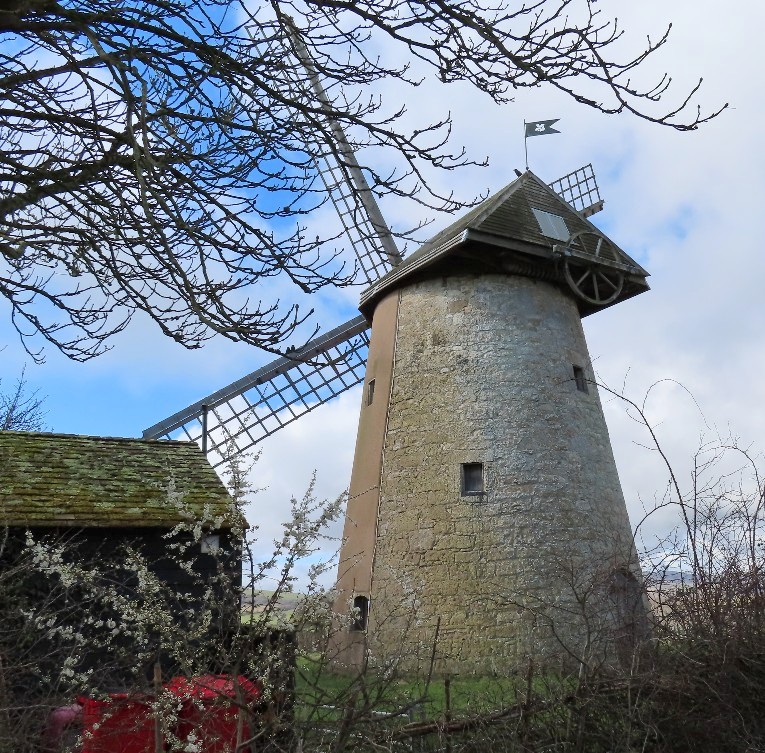
|
In 1933 SPAB launched an appeal for £100 for
repairs. The mill was then used as a cowshed and
store before being taken over as a Home Guard HQ and
observation post; it progressively became more and
more rotten.
In 1959 the Island National Trust raised £1000 to
start restoration and it became the property of the
National Trust in 1962. Its missing millstones were
replaced by ones from the old tide mill at Wootton
Bridge, which was demolished in 1963. In 1987 and
1991 it suffered considerable wind damage. |
|
The 38ft limestone tower is faced on the weather
side with cement rendering (see cover picture).
An interesting feature is the 6ft wooden wheel
(without its chain) which engages with a wooden worm
gear, which in turn meshes with the beechwood teeth
on the the oak curb to turn the cap into wind.
|
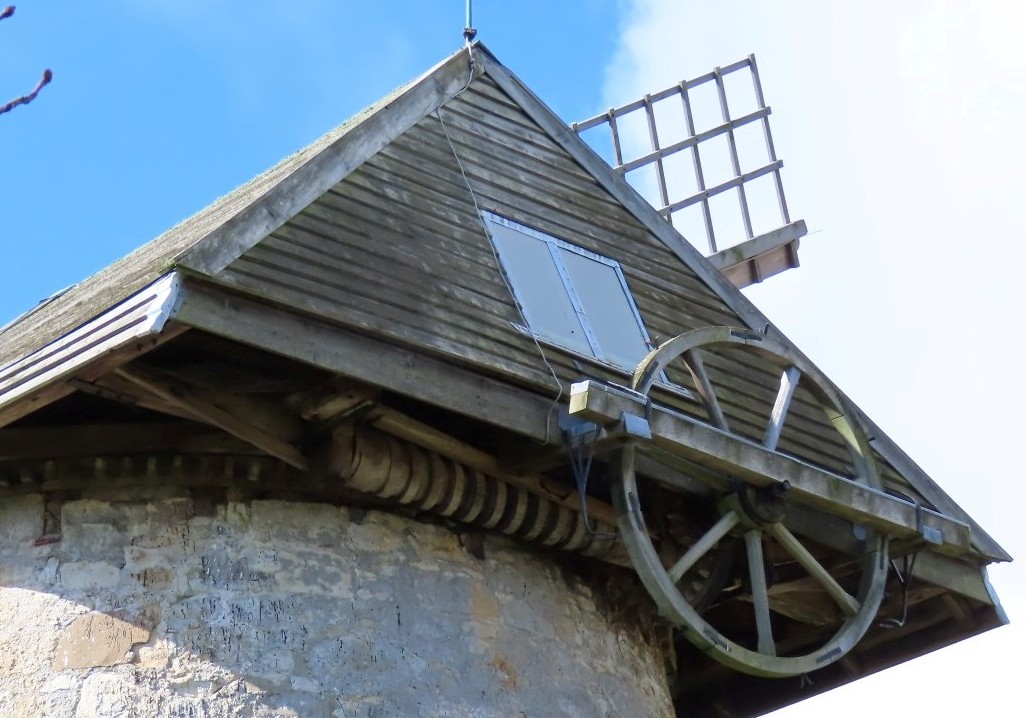
|
|
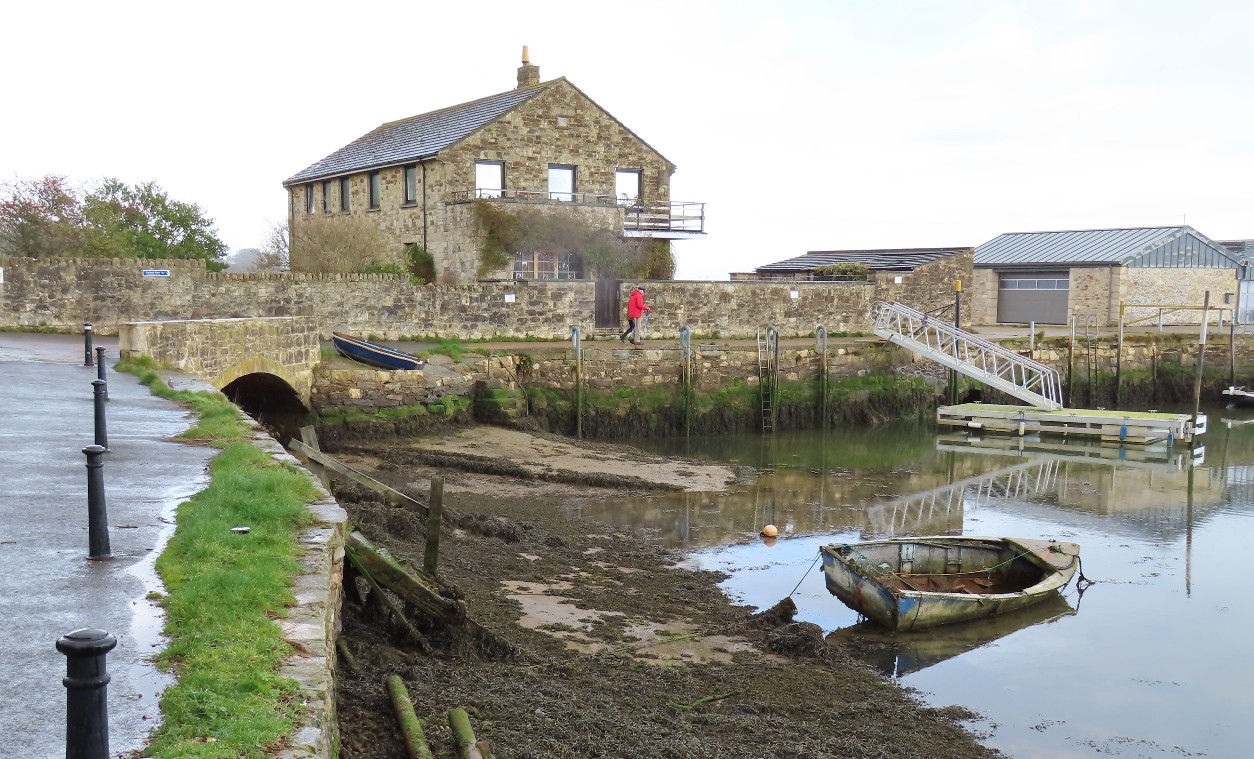
|
Our second photo stop was at St Helens where
a tide mill was built in about 1780. By 1930 the
mill was no longer operating and it became
derelict. It was finally demolished in 1969 and a
much smaller house was built on its site. The exit
from the wheel race is behind the the pontoon, and
is disguised with seaweed. |
|
We were intrigued by the large timber object lying
alongside a stone wall; it certainly looked like
part of a mill but was it this mill? And was it the
axle of a water wheel or an upright shaft? If
somebody knows, please tell me. Notice the sawn-off
ends of 6 compass arms towards the nearer end. |
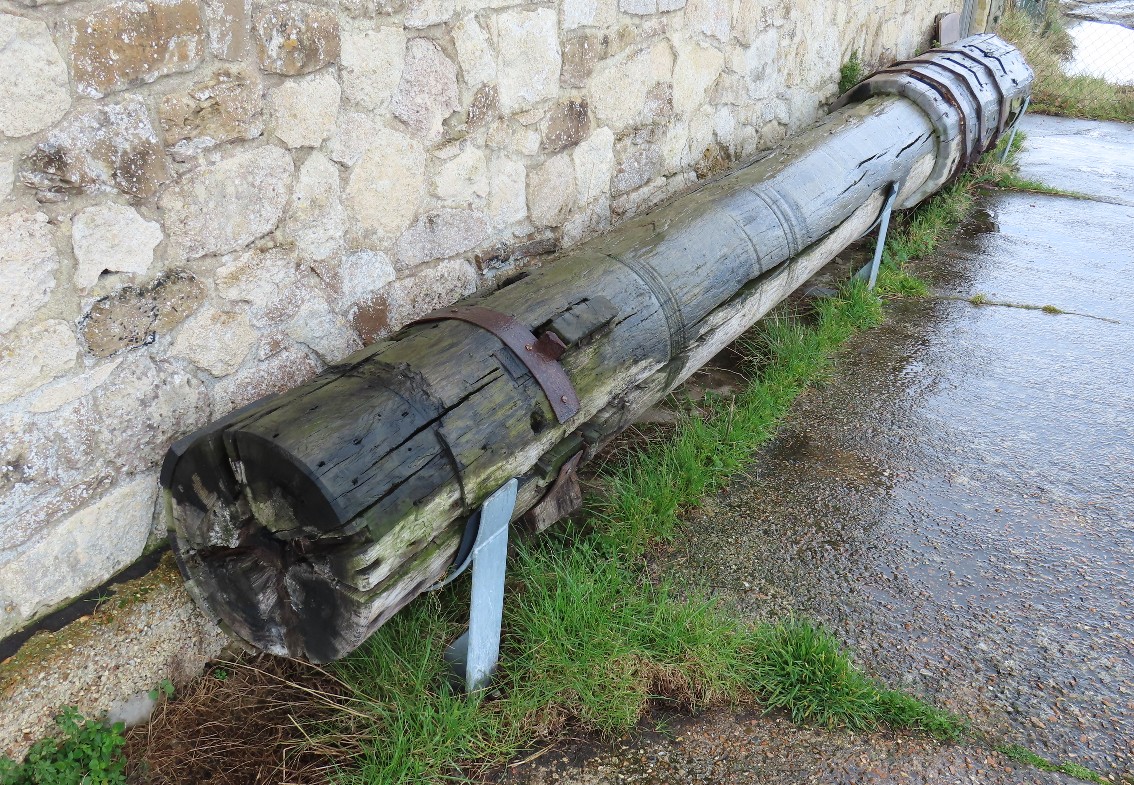
|
|
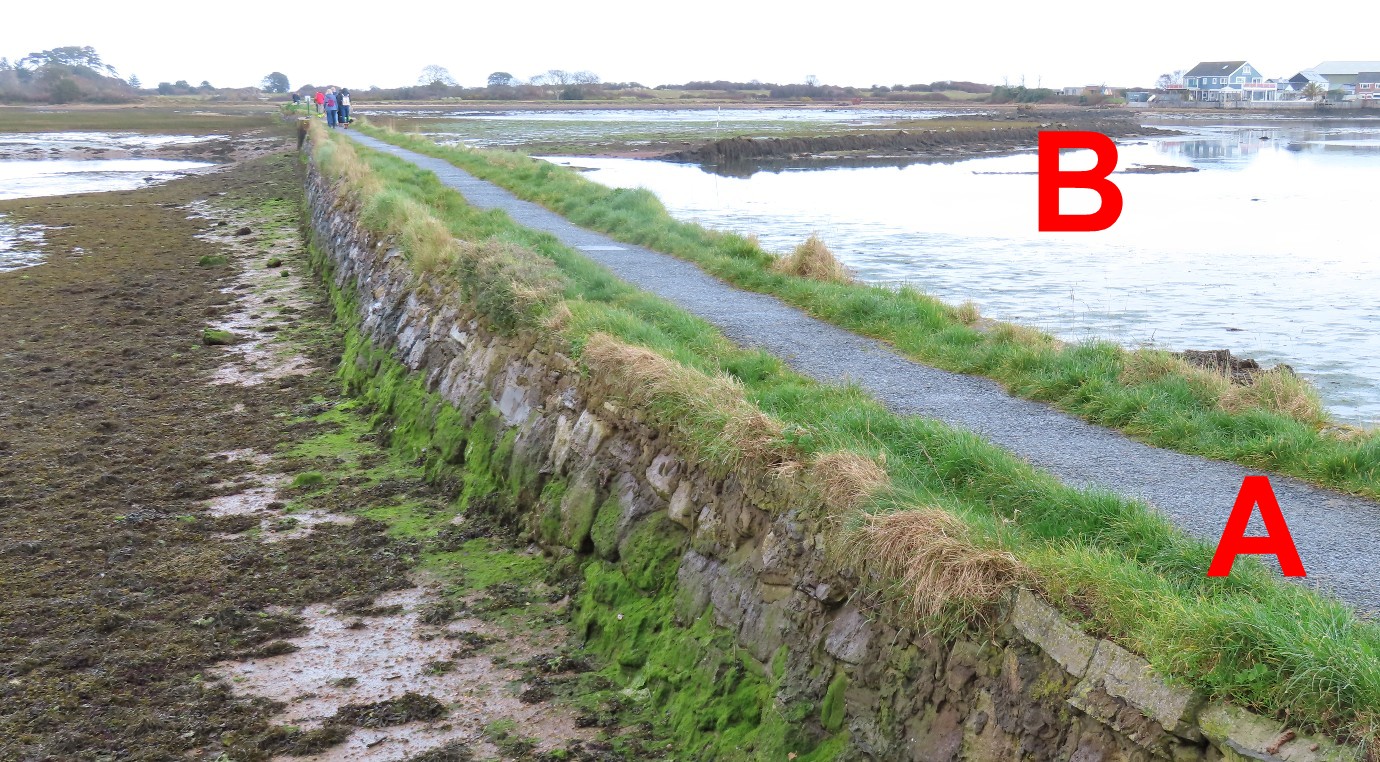
|
The tide ponds had two masonry dams which worked
together to maximise the milling time on each tide.
The inner dam (A)
is now a popular footpath and the remains of the
outer one can be seen at low tide (B).
Looking north east (left) and back towards
the mill site (below).
|
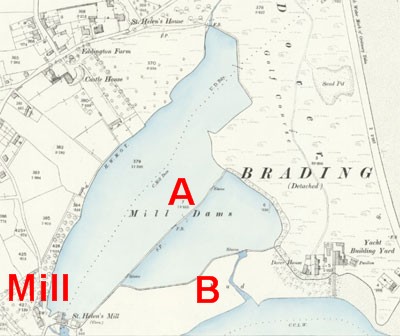 |
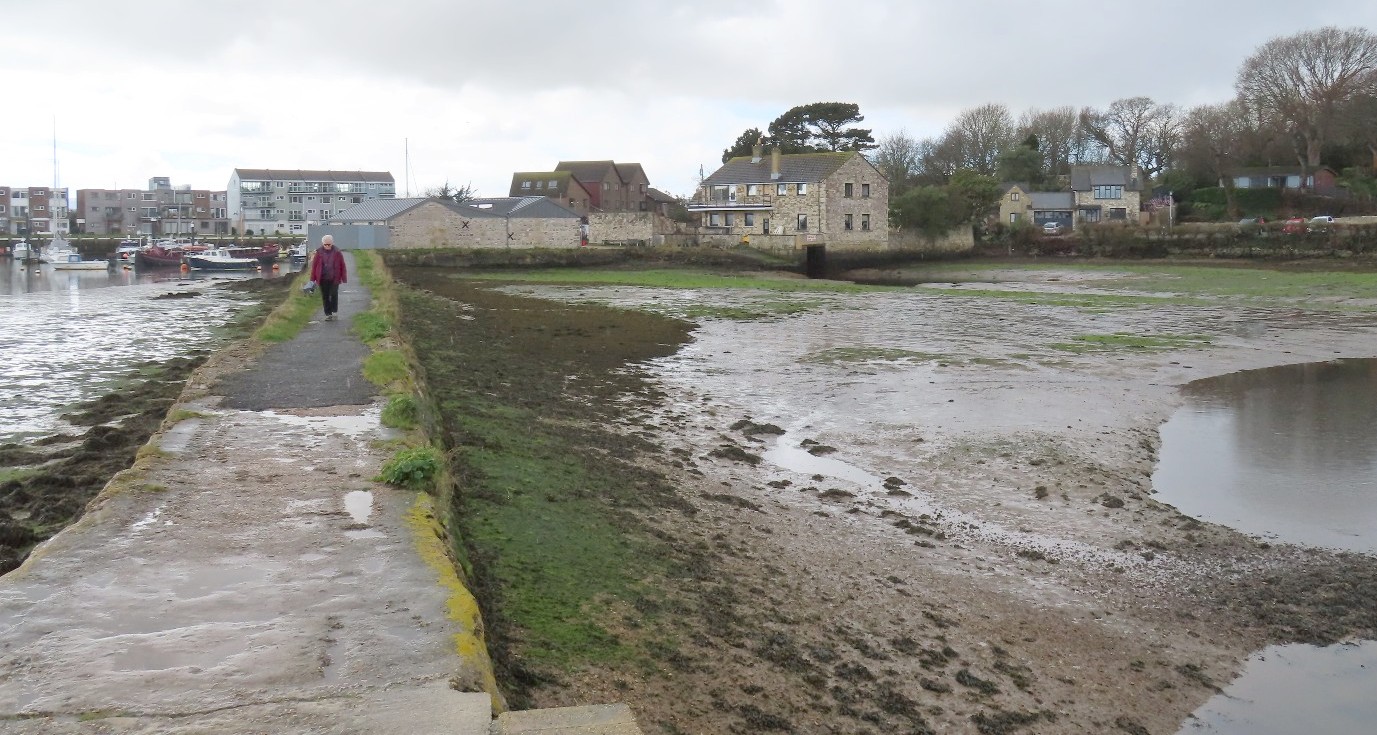
|
|
Our third visit was to Yarmouth, where the
tide mill is an original building but now converted
to residential use. It was built in 1793, replacing
an earlier wooden mill dating back to the mid-17th
century. In the 1880's a railway viaduct and
embankment were built across the mill pond to carry
the Newport to Freshwater railway – various writers
have suggested that the building of these features
disturbed the flow of water and resulted in the pond
silting up and the mill ceasing to operate. It
frequently appears in photographs (see again
newsletter 112), but here are two less usual views.
|
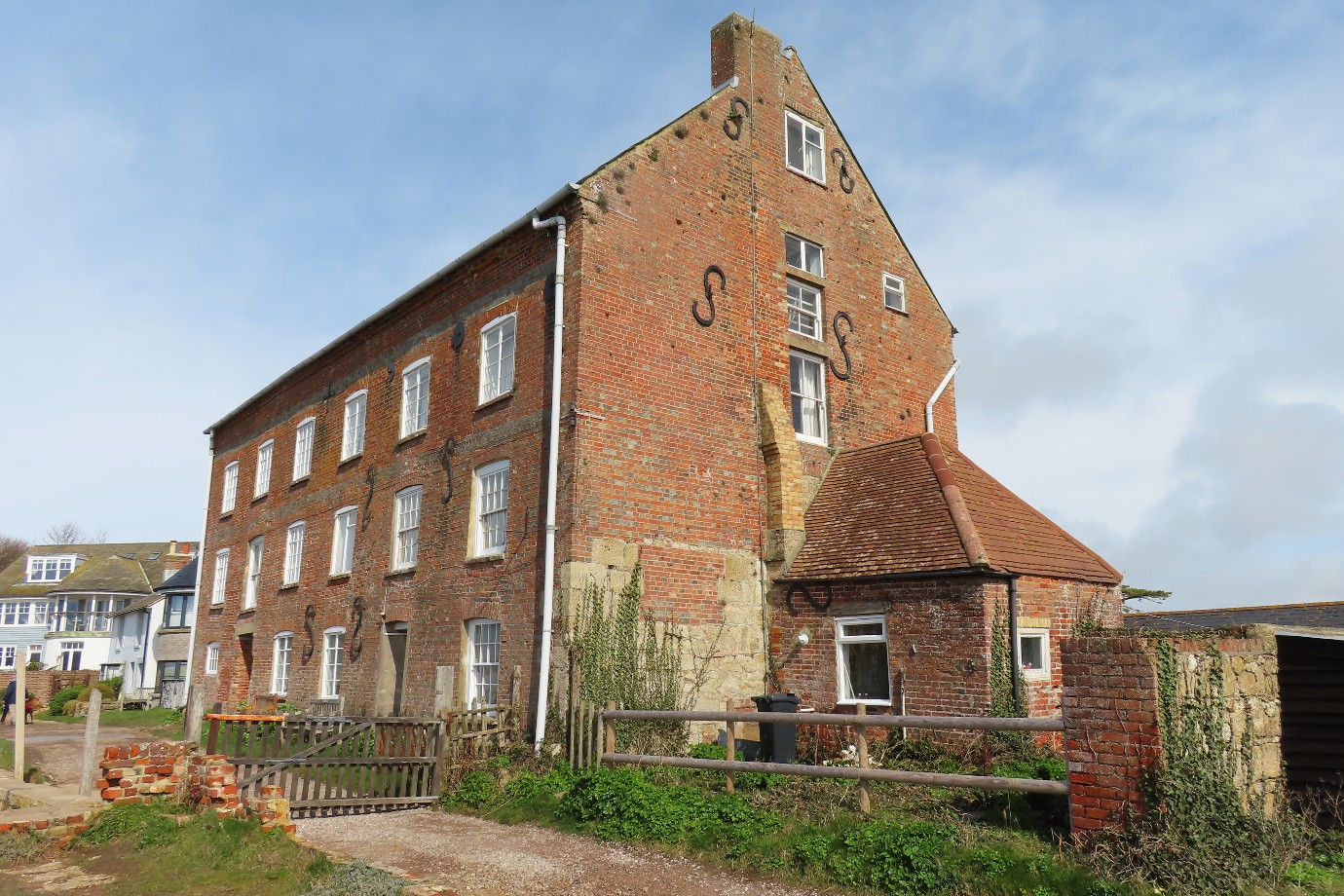 |
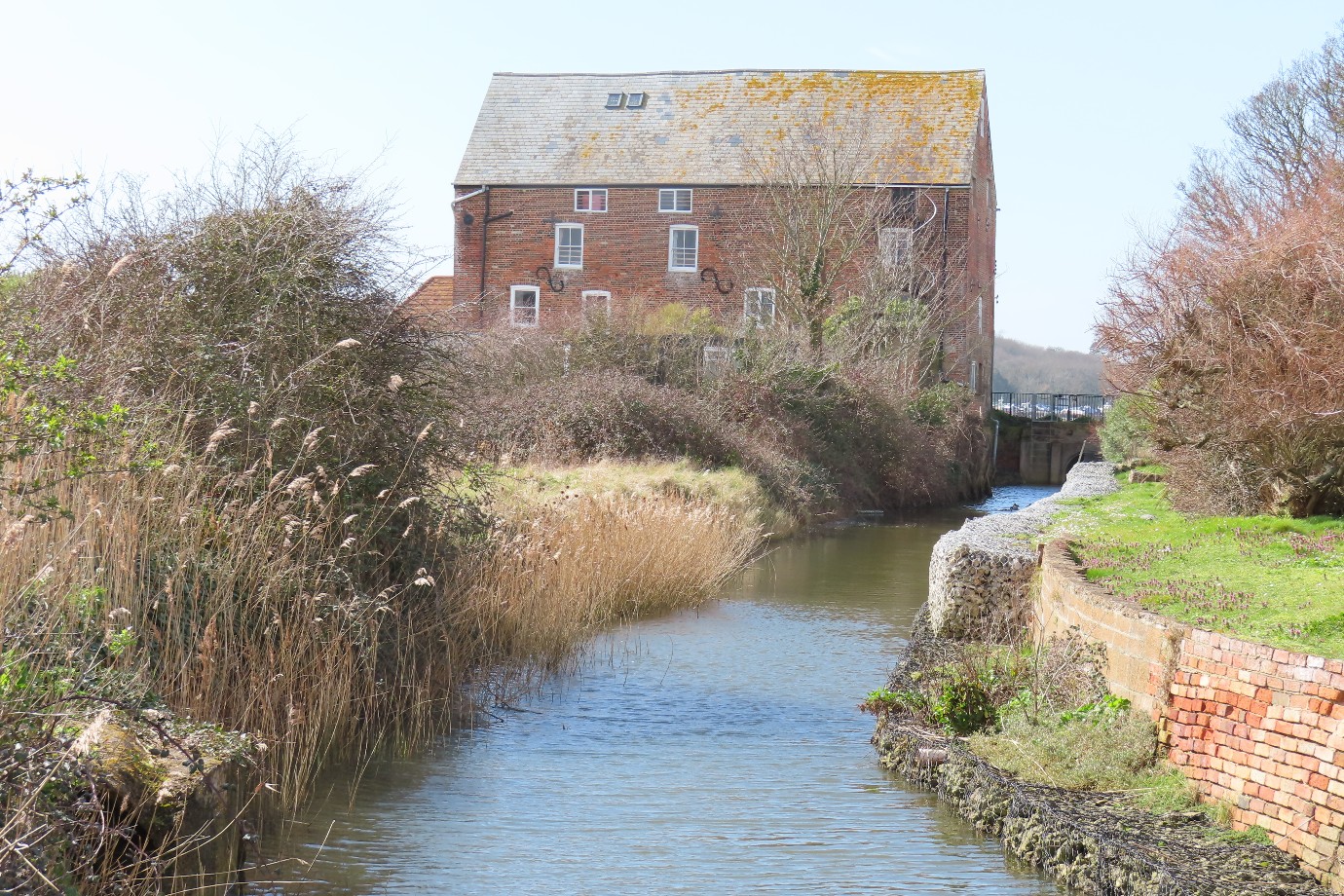 |
|
Finally we photographed Yafford Mill.
|
|
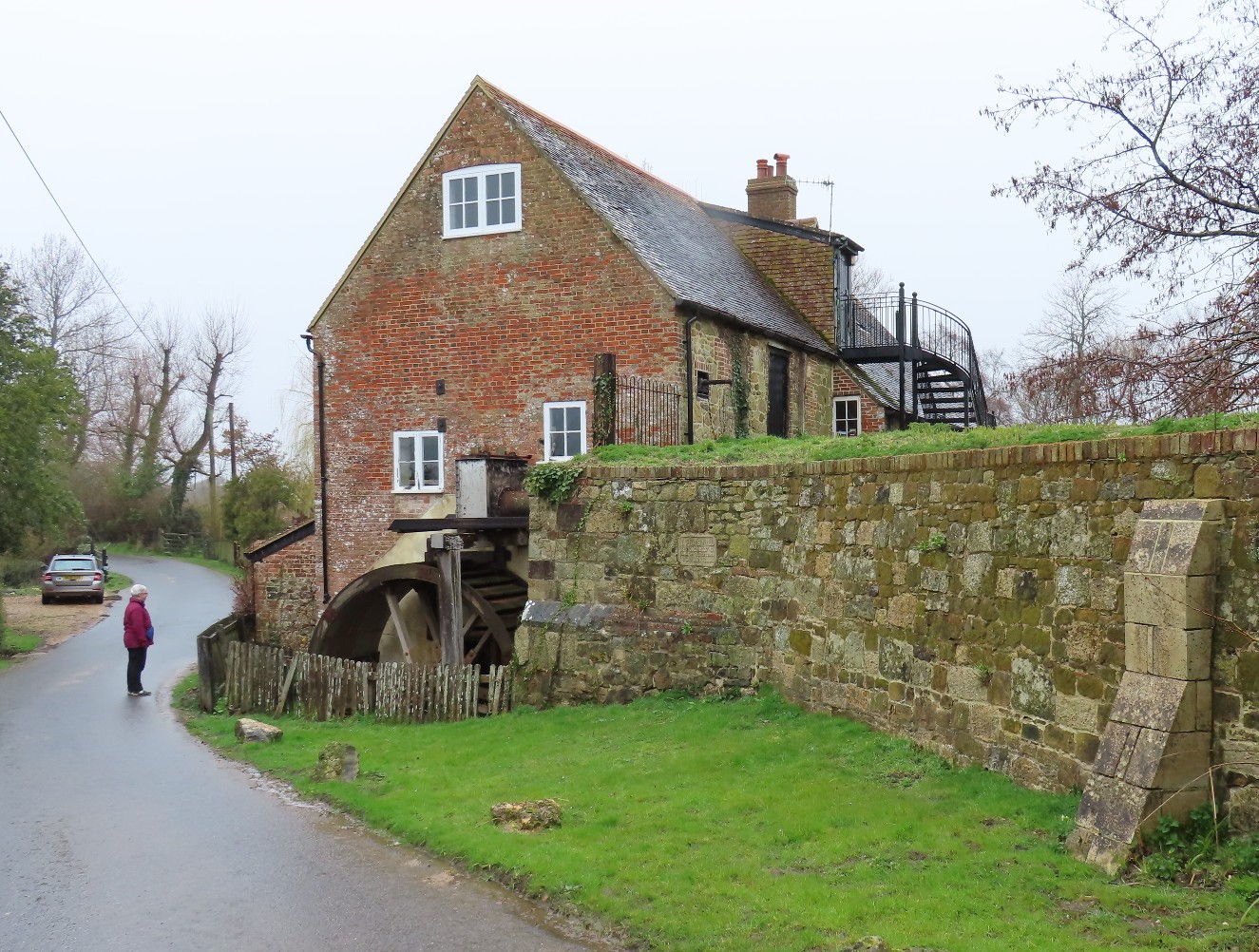
|
There was probably a mill on this site by 1750 but
its foundations seem to be older, maybe 15th
century. The present building dates from the
1800s. It was open to the public for a while until
2000, and included a magnificent collection of old
farm wagons, threshing machines and harvesters in
the grounds but it closed in 2000. It was restored
in 2007-10 as you can see in the plaque below.
|
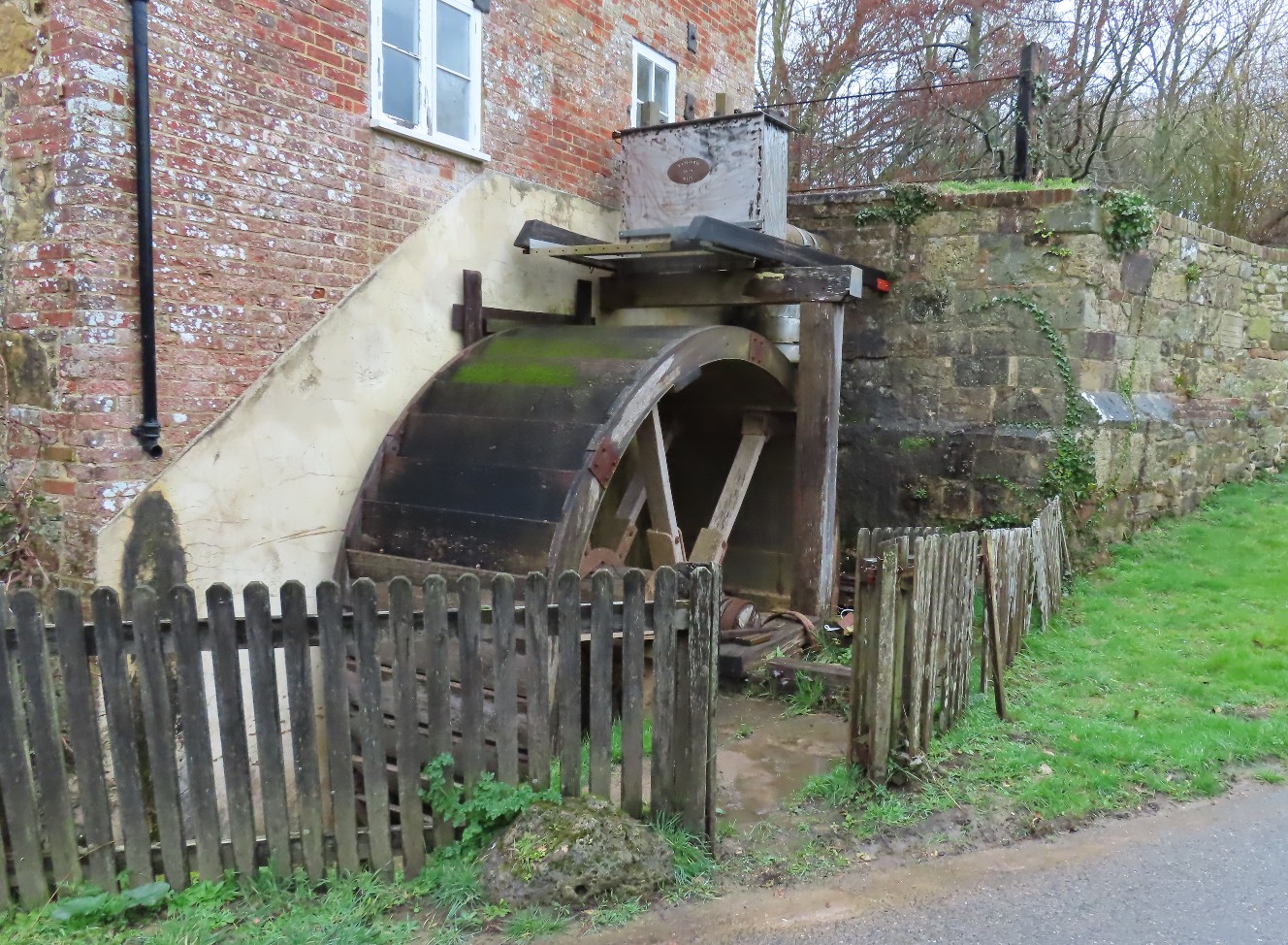 |
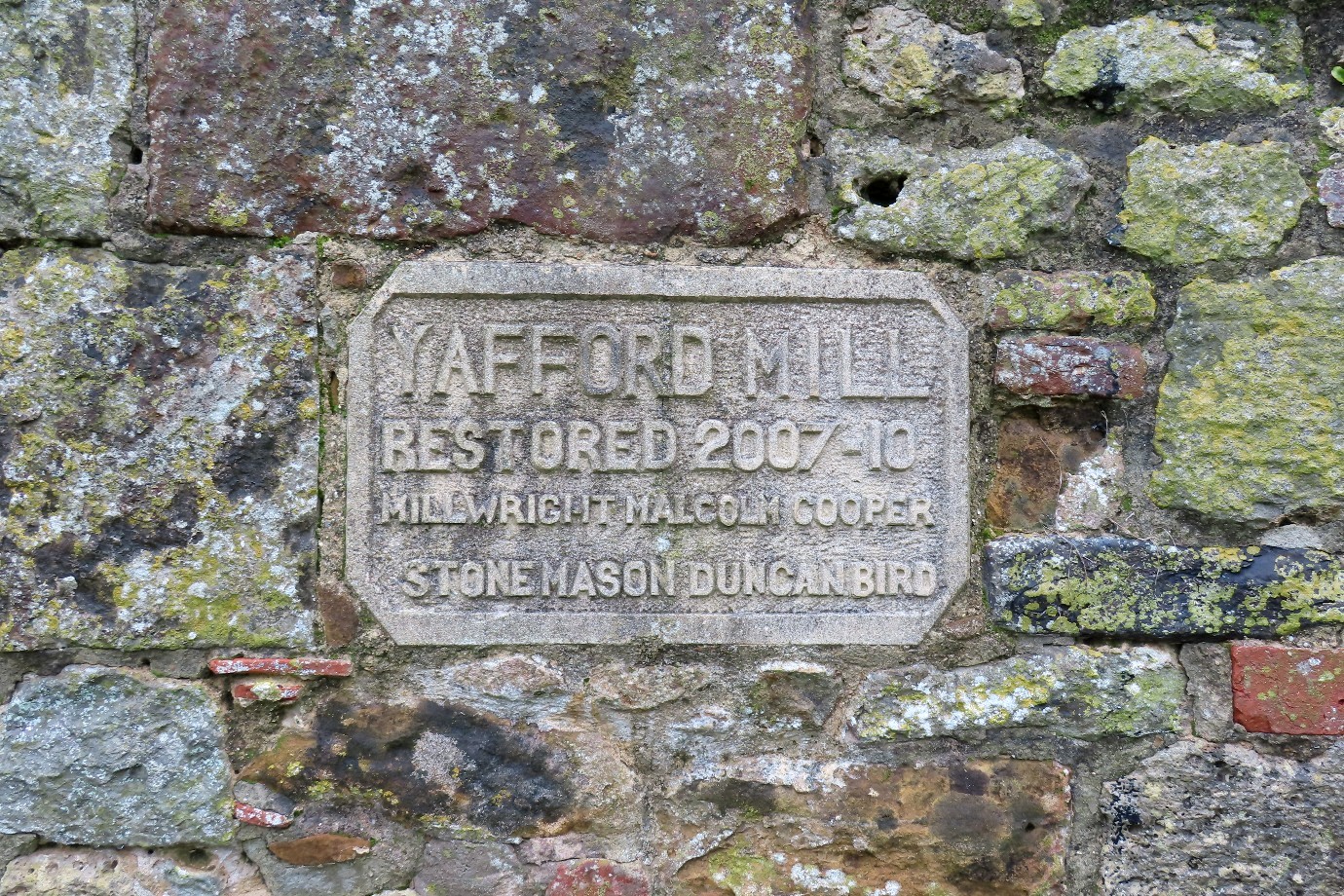 |
|
  |
|
|
